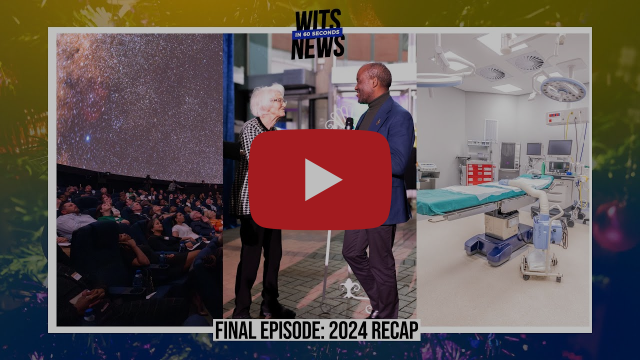January 2025
The US Witsie
TWENTY TWENTY THRIVE – THAT’S WHAT SOUTH AFRICANS ARE CALLING 2025. So typical of a country that is full of humor and hope and possibility. Wits has started welcoming students, new and old, who are on a path of learning and service. We can’t wait to see how they use their education to make the world a better place.
LET’S TALK ABOUT WORK: in the latest Issue of Curios.ty, all about AI, Africa, Equity, Skills and more.
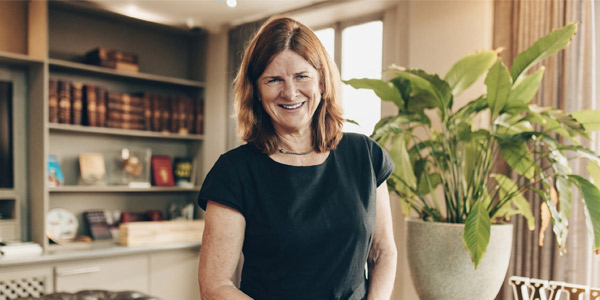
Deputy Vice-Chancellor for Research and Innovation, Professor Lynn Morris (pictured above) reflects on the world of work in her editorial for the latest issue of Curios.ty:
Work. It’s such a loaded word, isn’t it? It’s where most of us spend the bulk of our waking hours, how we pay the bills, and – hopefully – where we find some sense of purpose and community. But it’s also where we face stress, navigate change, and have those moments that make us rethink everything.
Take me, for example. I started out as a research scientist, completely fascinated by the world of microbes. I loved the thrill of discovery and analysing data. But fast forward, and today I’m the Deputy Vice-Chancellor of Research and Innovation at Wits. Now, my work is about strategy, leadership, and ensuring that research has a real-world impact. It’s a completely different kind of problem-solving – and one I never could’ve imagined for myself.
I’ll be honest, the transition was a big leap. But isn’t that life? Most of us end up on unpredictable career paths. The average person changes careers (not just jobs) three or more times in their lifetime. That’s wild, when you think about it, but also exciting, with each shift offering a brand-new world, with fresh challenges, opportunities, and lessons to learn.
In this issue of Curios.ty, there’s much to explore as we unpack what work means in all its forms. Artificial Intelligence is shaking up industries, offering incredible possibilities, but also sparking fears about job losses. How do we prepare for the evolving new world of work and ensure that no one gets left behind?
Read more here.

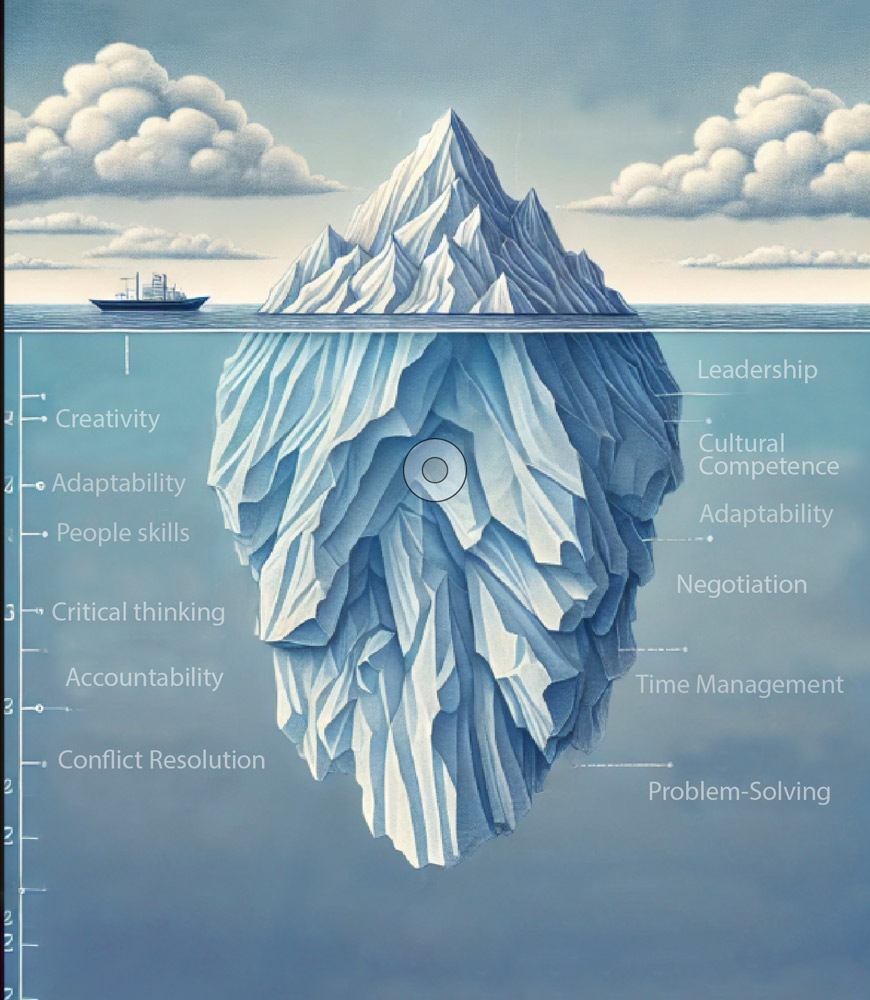
THREE MILLION YEARS AGO, OUR ANCESTORS WERE VEGETARIAN
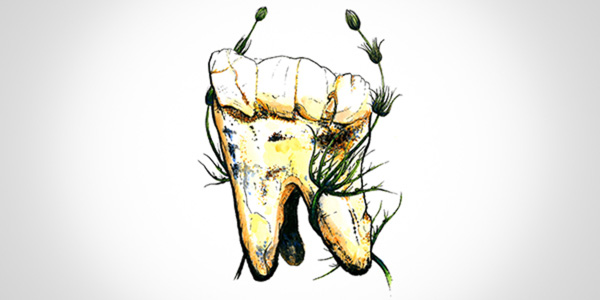
Human ancestors like Australopithecus – which lived around 3.5 million years ago in southern Africa – ate very little to no meat, according to new research published in the scientific journal Science. This conclusion comes from an analysis of nitrogen isotopes in the fossilized tooth enamel of seven Australopithecus individuals. The data revealed that these early hominins primarily relied on plant-based diets, with little to no evidence of meat consumption.
“This work represents a huge step in extending our ability to better understand diets and trophic level of all animals back into the scale of millions of years. The research provides clear evidence that its diet did not contain significant amounts of meat.
We are honored that the pioneering application of this new method was spearheaded at Sterkfontein, a site that continues to make fundamental contributions to science even 89 years after the first hominin fossils were discovered there by Robert Broom,” says Wits Professor Dominic Stratford, Director of Research at the Sterkfontein Caves and co-author of the paper.
Read more here.
WITS TEAM WINS NATIONAL INNOVATION PRIZE AND SEED FUNDING
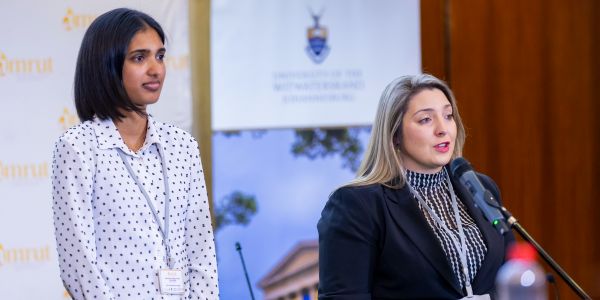
EcoCane Innovations’ Charissa De Gouveia and Shamira Pillay, (pictured above) Master of Science students in Chemical Engineering, triumphed with their eco-friendly bioplastic solution.
The team from Wits University won R200 000 in seed money in the final round of the inaugural 2024 National Innovathon Challenge.
Coached by PhD candidate in Mining Engineering, Oluwatobi Dayo-Olupona, from the Academic Development Unit (ADU) in the Faculty of Engineering and the Built Environment (EBE) at Wits, their project aims to reduce plastic pollution by producing biodegradable bioplastics from sugarcane.
“EcoCane Innovations focuses on producing sustainable bioplastics derived from sugarcane, offering an eco-friendly alternative to traditional plastics. Our bioplastics are designed to combat the growing issue of plastic pollution in South Africa by providing a biodegradable and renewable solution…We aim to reduce the environmental impact of plastic waste and lower carbon emissions,” said the team.
Read more here.
As we feel gratitude for the blessings in our lives, one way to pay it forward is through making an impact in a person’s life that will uplift them, and their familes, for generations to come.
DONATE HERE
WATCH: WITS’ LATEST NEWS IN SIXTY SECONDS – In this 2024 highlights wrap-up episode: from the launch of the Wits Anglo American Digital Dome to the renaming of the Wits Margo Steele School of Accountancy, Wits continues to innovate and inspire. Join us as we reflect on this year’s impactful events, including the opening of the Wits Roy McAlpine Burns Unit, the prestigious Nelson Mandela Lecture, and the unveiling of the transformative MIND initiative. WitsPlus, the new hub of Wits’ short courses, emphasizes lifelong learning.
Read the full stories here.
Other ways to Give
Corporate Matching Gifts
To include The University of the Witwatersrand Fund Inc (#13-390 2012) in your employer’s matching gift program, please follow your company’s corporate matching guidelines. Donations can be sent to:
The University of the Witwatersrand Fund, Inc.
PO Box 7101
New York, NY 10150
